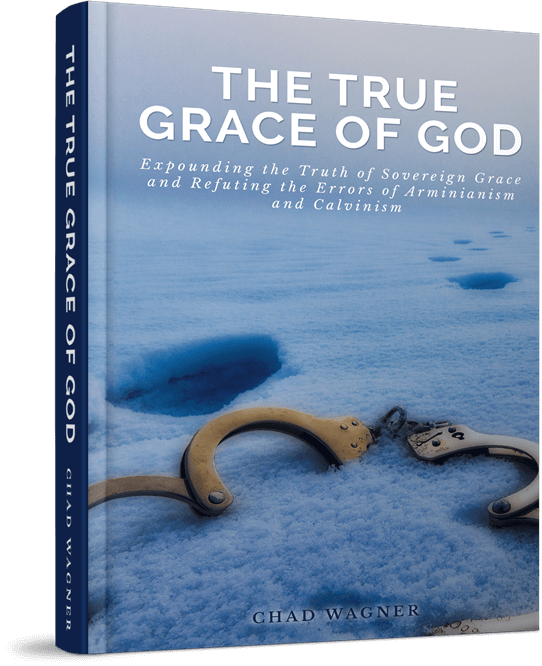Matthew Henry’s sage words have been replaying through my mind for several days. While bearing life’s crosses, many Christians have to fight the temptation to give up on their willingness to live. This may seem like an unchristian attitude to those who have not suffered with depression, anxiety, or burnout, but an examination of the lives of some of the greatest men in Biblical history shows that this is a common struggle among the followers of God.
When Moses was overburdened with the responsibility of leading the rebellious, ungrateful nation of Israel, he reached a breaking point and requested that the LORD would kill him.
Num 11:14-15 – I am not able to bear all this people alone, because it is too heavy for me. 15 And if thou deal thus with me, kill me, I pray thee, out of hand, if I have found favour in thy sight; and let me not see my wretchedness.
The Lord, not willing to suffer Moses to be tempted above what he was able to bear, provided a way of escape by giving him 70 elders to help bear his burden.
Num 11:16-17 – And the LORD said unto Moses, Gather unto me seventy men of the elders of Israel, whom thou knowest to be the elders of the people, and officers over them; and bring them unto the tabernacle of the congregation, that they may stand there with thee. 17 And I will come down and talk with thee there: and I will take of the spirit which is upon thee, and will put it upon them; and they shall bear the burden of the people with thee, that thou bear it not thyself alone.
Elijah, a day after experiencing great success on Mount Carmel and slaying the 450 prophets of Baal, besought the LORD that he might die.
1Ki 19:4 – But he himself went a day’s journey into the wilderness, and came and sat down under a juniper tree: and he requested for himself that he might die; and said, It is enough; now, O LORD, take away my life; for I am not better than my fathers.
Jonah, after being used to effect a city-wide revival in Nineveh, the largest metropolis on earth at the time, immediately became disgruntled and wished to die.
Jon 4:3 Therefore now, O LORD, take, I beseech thee, my life from me; for it is better for me to die than to live.
The next day, as the sun beat upon his head after the LORD had smitten the gourd which He had given him for shade, Jonah again longed for death.
Jon 4:8 – And it came to pass, when the sun did arise, that God prepared a vehement east wind; and the sun beat upon the head of Jonah, that he fainted, and wished in himself to die, and said, It is better for me to die than to live.
And then there is Job. If there was ever a man who was acquainted with depression and anxiety, it was he. “Wearisome nights are appointed to me,” lamented Job, being unable to sleep and “full of tossings to and fro unto the dawning of the day” (Job 7:3-4). He was in anguish of spirit and bitterness of soul (Job 7:11). When he sought comfort in his bed, nightmares haunted him, and he complained to God that “thou scarest me with dreams, and terrifiest me through visions” (Job 7:14). In this miserable condition, Job lost his motivation to live and yearned for death.
Job 7:15-16 – So that my soul chooseth strangling, and death rather than my life. 16 I loathe it; I would not live alway: let me alone; for my days are vanity.
It is therefore not uncommon for the servants of the LORD, when facing life’s difficulties and disappointments, to lose their willingness to live and to desire death. Over the last eight months, while suffering with anxiety and depression, there has been many a time when I have longed “to depart, and to be with Christ; which is far better” (Php 1:23), for “to me . . . to die is gain” (Php 1:21). (I am not contemplating suicide ― and if anyone reading this is, get help immediately.)
But during those dark times, I must remind myself that “For to me to live is Christ” (Php 1:21), “to abide in the flesh is more needful for you (the church I serve)” (Php 1:24), and “ye are bought with a price: therefore glorify God in your body, and in your spirit, which are God’s” (1Co 6:20). During life’s greatest crosses, I must be willing to live.
Pro 24:10 – If thou faint in the day of adversity, thy strength is small.
2Co 4:1 – Therefore seeing we have this ministry, as we have received mercy, we faint not;
Life is full of disappointments, and it does not always turn out like we had hoped, planned, or expected. If we are thinking Biblically, we should not expect our life to be a bed of roses, for our Lord said, “In the world ye shall have tribulation” (Joh 16:33). But never forget the rest of the verse: “but be of good cheer; I have overcome the world.” If we are willing to lose the lives we had hoped and dreamed for in order to follow Christ, we will find the abundant life that He came to give us.
Mat 10:38-39 – And he that taketh not his cross, and followeth after me, is not worthy of me. 39 He that findeth his life shall lose it: and he that loseth his life for my sake shall find it.
Joh 10:10 – The thief cometh not, but for to steal, and to kill, and to destroy: I am come that they might have life, and that they might have it more abundantly.
Getting back to Matthew Henry’s quote, it has been my observation that most people, Christian and heathen alike, do not struggle with a willingness to live, but rather with a willingness and readiness to die. Unbelievers think they only have one life to live and therefore cling to it with all their might, while Christians in theory believe that the best is yet to come, but in practice live like the people of this world, holding onto this life with an iron grip. With the exception of the extremely elderly and those who are in terrible health and live in absolute misery, it appears to me that most people are not ready to die, regardless of what they say.
Christians who love their lives and enjoy them to the fullest need to be ready and willing to die, remembering and embracing the fact that “to die is gain” and “to depart, and to be with Christ . . . is far better” (Php 1:21, 23).
If they don’t loosen up their grip on life, they might find it pried away from them some day.
Joh 12:25 – He that loveth his life shall lose it; and he that hateth his life in this world shall keep it unto life eternal.









10 Responses
Hi Pastor Wagner.
This is a wonderfully encouraging message!
I took pages and pages of notes on the “Fear, Anxiety and Panic” series that you did. It is an excellent work! The 2nd half of Part 6 in which Asaph is describing himself in Psalm 77 I will never forget and when I feel as you have described yourself as feeling, I run to Psalm 77. I’m glad that we are not alone in our struggles as the Bible gives us many examples of others who struggled (as you taught us in this series).
Thank you for doing the series on Wokism for it helped explain what is going on with the heathen whom we live among. The intense labor of that difficult series that you put into it is appreciated. If we are not focusing on the Lord, the state of the world would cause us anxiety. There are no words to show our appreciation for your teaching my husband, Rollin, and me God’s Word rightly divided way out here in Western Colorado. We are praying for
you.
Blessings!
Debi
Thank you for your encouragement, Debi. I’m thankful to hear that you found the series on Fear, Anxiety, and Panic and the series on Wokism to be helpful. It’s good to know that my labor has not been in vain. Thank you for your prayers. May God bless you.
You will continue to be in my prayers for healing.
Thank you, Mom. I really appreciate that. I have been feeling better for the last two days, thanks be to God.
I couldn’t agree more, Pastor Wagner!
May the Lord give you peace, strength, and joy as you do the work of the ministry, and as you face life’s challenges.
“Be glad in the LORD, and rejoice, ye righteous: and shout for joy, all ye that are upright in heart.” (Psa 32:11)
Thank you for the encouragement. May God bless you.
Dear Pastor Wagner, l really enjoyed this wonderful teaching. I am sorry I was not able to get your book yet! Looking forward to reading it. I have been in a spiritual battle for awhile now. But l know and believe God will provide the grace and mercy to overcome this battle too! I have been through so many spiritual battle the last few years. It seems like l am always saying “Oh God! l don’t understand” l hang on to “but l know you do” God bless you mightily!!! May God keep sound in the faith “Once delivered to the saints”
Thank you, Wanda. I will pray for you. May God be with you and encourage you.
Absolutely Pastor Wagner. Your job here is not finished. Keep preaching the Word with boldness as did the Apostle Paul. Glorify our God and His mighty name. Preservation of the Saints, thank God!
In Christ,
Bill
Thank you for the encouragement, brother. “But none of these things move me, neither count I my life dear unto myself, so that I might finish my course with joy, and the ministry, which I have received of the Lord Jesus, to testify the gospel of the grace of God.” (Act 20:24)